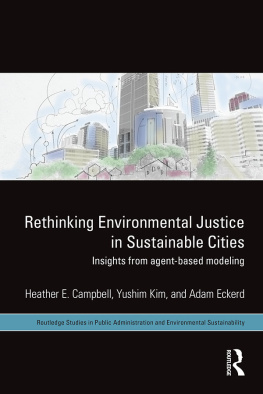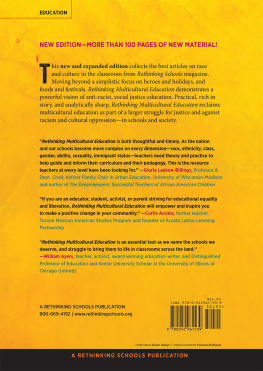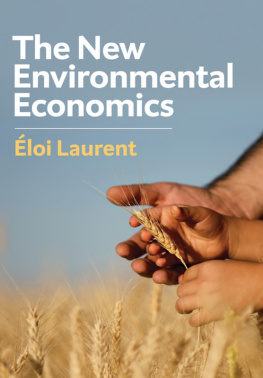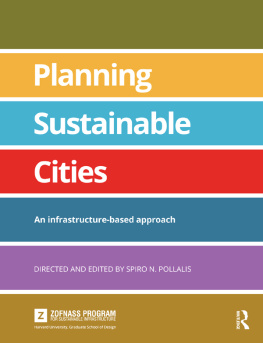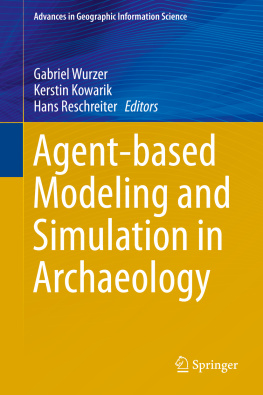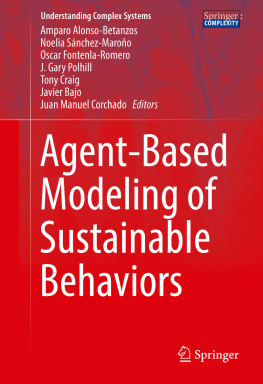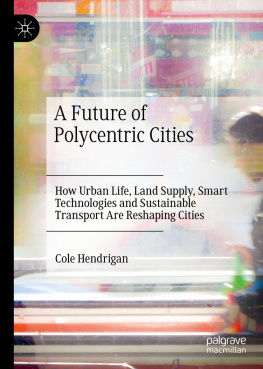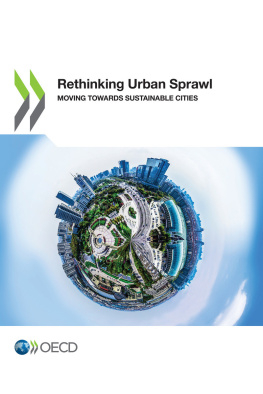Rethinking Environmental Justice in Sustainable Cities is an important book, not only for its examination of the causes and contexts of environmental injustice in US cities, but also as an exemplar of how agent-based modelling can be used to illuminate questions of major policy significance. The book will be of great value to the rapidly expanding community of researchers developing computational models to provide advice in a range of policy fields.
Nigel Gilbert, University of Surrey, UK
For a qualitative researcher who investigates environmental justice primarily through archival material and interview data, this book is certainly thought provoking. The authors advocate the use of Agent Based Modeling, a method of computational simulation, to understand causes of environmental injustice at the systems level. They argue that injustice might be an emergent outcome, unintended by any particular actor or the result of malicious intent. Furthermore, emergence could be used to think more critically about environmental policy and planning for purposes of urban sustainability. Whether or not one is a fan of computational simulation, this book is sure to inspire heated debates in the classroom and engage the important issue of EJ from yet another perspective.
Brinda Sarathy, Pitzer College
Rethinking Environmental Justice in Sustainable Cities
As the study of environmental policy and justice becomes increasingly significant in todays global climate, standard statistical approaches to gathering data have become less helpful in generating new insights and possibilities. None of the conventional frameworks easily allows for the empirical modeling of the interactions of all the actors involved, or for the emergence of outcomes unintended by the actors. The existing frameworks account for the what, but not for the why.
Heather E. Campbell, Yushim Kim, and Adam Eckerd bring an innovative perspective to environmental justice research. Their approach adjusts the narrower questions often asked in the study of environmental justice, expanding to broader investigations of how and why environmental inequities occur. Using agent-based modeling, they study the interactions and interdependencies among different agents such as firms, residents, and government institutions. Through simulation, the authors test underlying assumptions in environmental justice and discover ways to modify existing theories to better explain why environmental injustice occurs. Furthermore, they use agent-based modeling to generate empirically testable hypotheses, which they employ to check if their simulated findings are supported in the real world using real data.
The pioneering research on environmental justice in this text will have effects on the field of environmental policy as a whole. For social science and policy researchers, this book explores how to employ new and experimental methods of inquiry on challenging social problems, and for the field of environmental justice the authors demonstrate how agent-based modeling helps illuminate the complex social and policy interactions that lead to both environmental justice and injustice.
Heather E. Campbell is Chair of the Department of Politics and Policy and Field Chair for Policy at the Claremont Graduate University, School of Social Science, Policy, and Evaluation.
Yushim Kim is an associate professor at the School of Public Affairs at Arizona State University (ASU) in Phoenix.
Adam Eckerd is an assistant professor, at the Department of Political Science, University of Tennessee.
Routledge Studies in Public Administration and Environmental Sustainability
Edited by Daniel J. Fiorino and Robert F. Durant, American University
Climate change, loss of habitat and bio-diversity, water security, and the effects of new technologies are placing pressure at all levels of government for effective policy responses. Old policy solutions and the administrative processes associated with them not only seem inadequate for managing environmental and energy sustainability issues, but even counterproductive. The challenge for societies worldwide often is how best to harness in the public interest the dynamism of markets, the passion and commitment of nonprofit and nongovernmental organizations, and the public interest oriented expertise of career civil servants at all levels of government. Routledge Studies on Public Administration and Environmental Sustainability focuses on core public administration questions as they relate to the topics of environmental, energy, and natural resources policies, and which together comprise the field of environmental sustainability.
1. Presidential Administration and the Environment
Executive leadership in the age of gridlock
David M. Shafie
2. Collaborative Strategies for Sustainable Cities
Economy, environment and community in Baltimore
Eric S. Zeemering
3. Rethinking Environmental Justice in Sustainable Cities
Insights from agent-based modeling
Heather E. Campbell, Yushim Kim, and Adam Eckerd
Rethinking Environmental Justice in Sustainable Cities
Insights from agent-based modeling
Heather E. Campbell, Yushim Kim and Adam Eckerd
First published 2015
by Routledge
711 Third Avenue, New York, NY 10017
and by Routledge
2 Park Square, Milton Park, Abingdon, Oxon OX14 4RN
Routledge is an imprint of the Taylor & Francis Group, an informa business
2015 Taylor & Francis
The right of the editors to be identified as the authors of the editorial material, and of the authors for their individual chapters, has been asserted in accordance with sections 77 and 78 of the Copyright, Designs and Patents Act 1988.
All rights reserved. No part of this book may be reprinted or reproduced or utilized in any form or by any electronic, mechanical, or other means, now known or hereafter invented, including photocopying and recording, or in any information storage or retrieval system, without permission in writing from the publishers.
Trademark notice: Product or corporate names may be trademarks or registered trademarks, and are used only for identification and explanation without intent to infringe.
Library of Congress Cataloging in Publication Data
Campbell, Heather E.
Rethinking environmental justice in sustainable cities : insights from agent-based modeling / Heather E. Campbell, Yushim Kim, and Adam Eckerd.
pages cm. (Routledge studies in public administration and environmental sustainability ; 3)
Includes bibliographical references and index.
1. Environmental justiceMathematical models 2. Urban ecology (Sociology)Mathematical models. 3. Sustainable developmentMathematical models. I. Kim, Yushim. II. Eckerd, Adam. III. Title.
GE220.C36 2015
363.70561dc23
2014043515
ISBN: 978-0-415-65744-0 (hbk)
ISBN: 978-0-203-07694-1 (ebk)
Heather E. Campbell dedicates this book to Dr. Gregory Daneke, for early faith, mentorship, and insisting that she pay attention to agent-based modeling and complexity; and to Michael K. Tschudi for love and GIS.
Yushim Kim and Adam Eckerd dedicate this book to Professor Anand Desai for his mentorship, humor, and willingness to entertain their methodological explorations; and to Professors Andy Keeler and Robert Greenbaum for teaching and support at Ohio State University.


